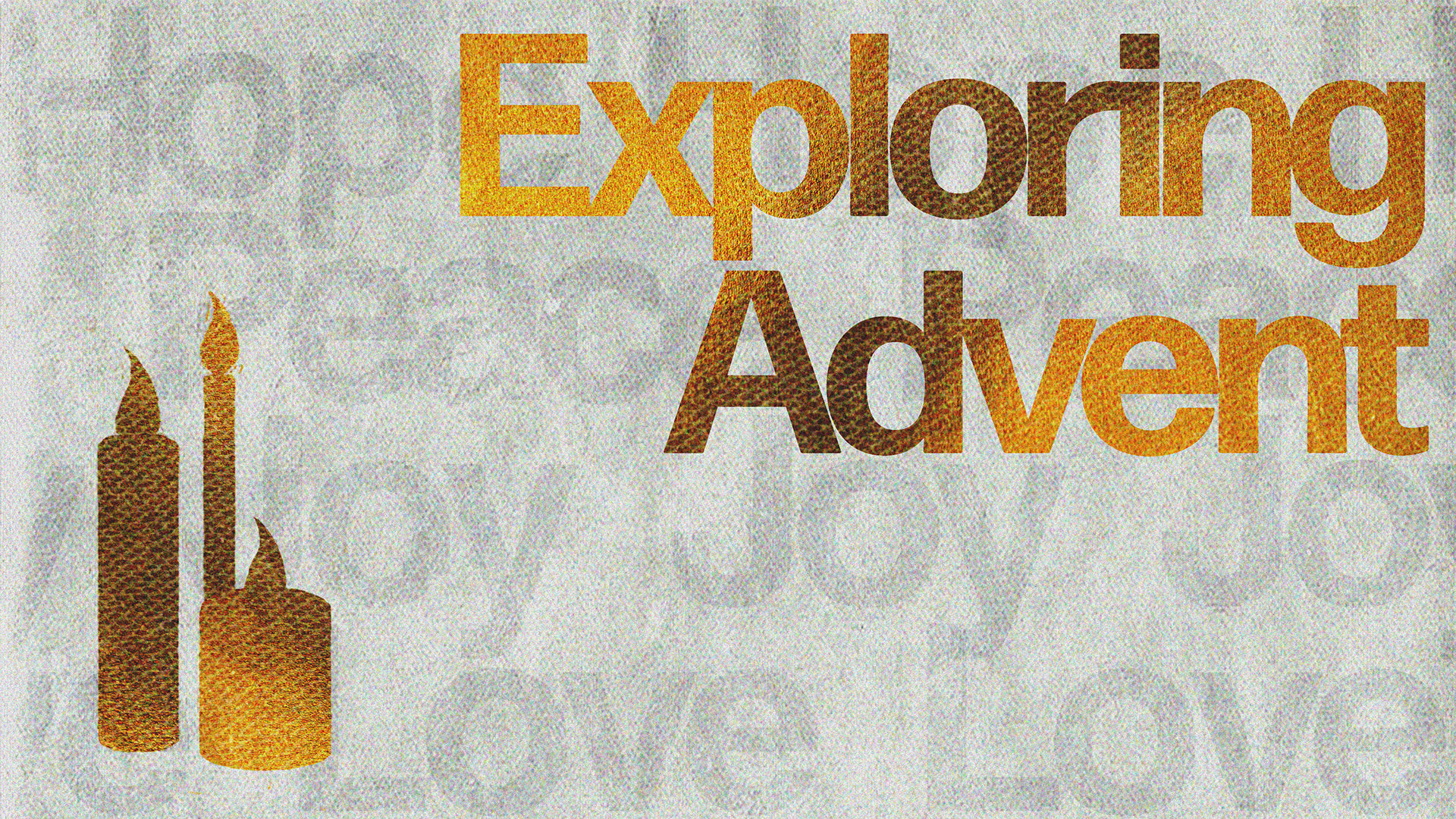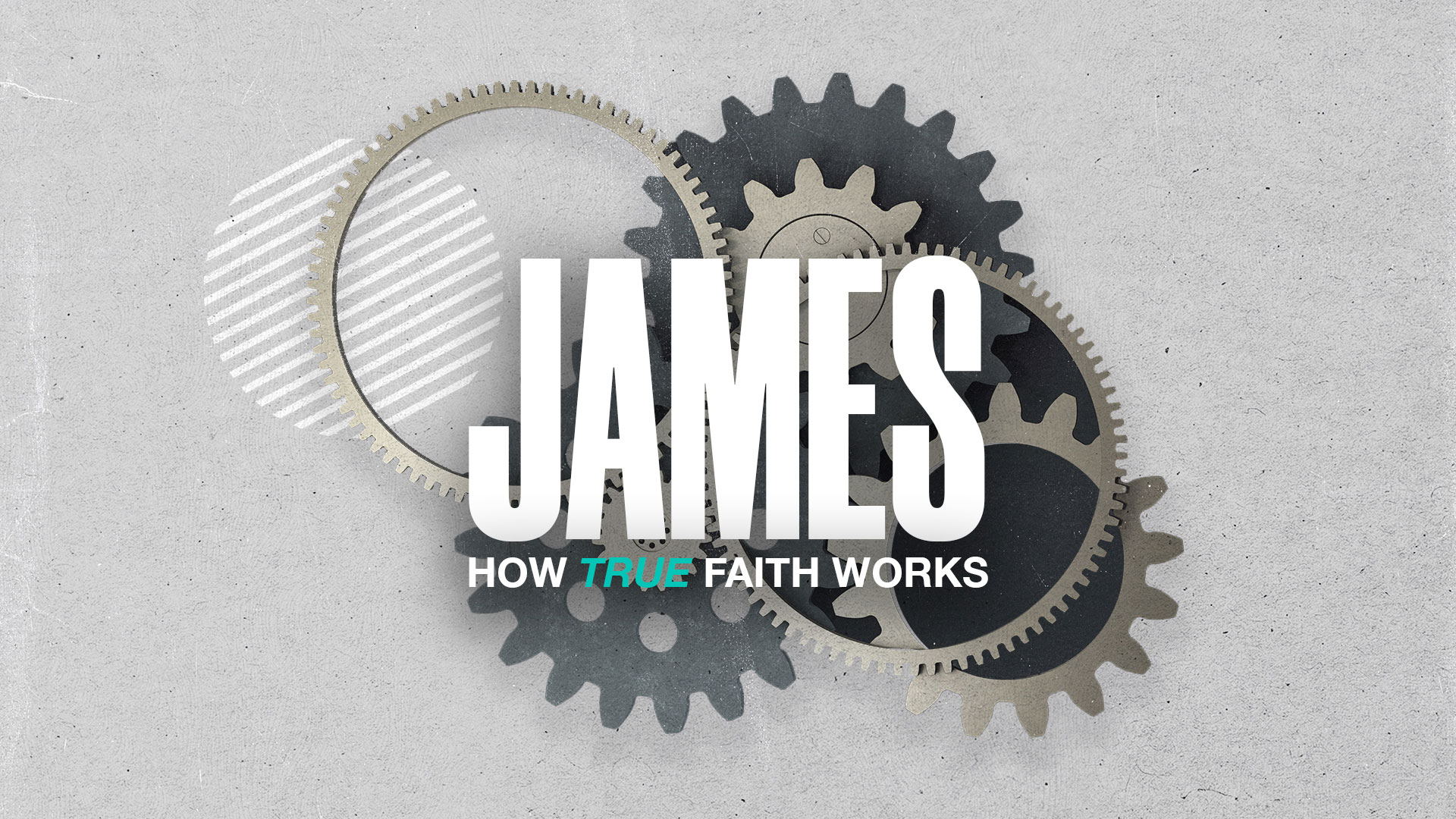One Last Thing
Discussion & Practice
- Read Luke 19:28-44. What stands out to you most in this passage or from the sermon?
- Where do you have trouble trusting that Jesus is in full control and sees the big picture?
- What are some of the differences in the responses of the crowd of disciples and the Pharisees or the crowd in Jerusalem?
- What area of your life are struggling to give over control? What is the "one last thing" God is showing you that you need to surrender in this season?
- What does it mean that discipleship is marked by joy? Do you believe this? Why or why not?
- Can you respond to Jesus' rule without joy? If so, is it sustainable?
Practice: Consider giving something up this week that God has been showing you is too high on your priority list. See if you can go without it this week as you reflect on the reality of Jesus' kingship and of his death on your behalf. Reflect on what he may be calling you to give up. What is an area where you're not totally surrendered to him––an area where you need to die to self as we prepare to celebrate resurrection life that we can experience today.
Notes
I was with this year’s biblical counseling class yesterday and they just finished up 7 months of training. I did something a little cruel, though. I told them ABC has updated their certification and we missed the deadline for being grandfathered into the old program. So, on the last day of class yesterday, I told them there would be one more module that includes one more exam and one more paper. And right when they were about to pick up rocks and stone me, I said, but the important thing to remember is that today is April Fools’ Day and none of that is true––you’re actually done! Two of our elders are in that class, so if I’m not here next week I got fired.
It’s the absolute worst when you get the end of a long journey and you find out there’s one last, unexpected thing in the way. We’ve been in this season of Lent anticipating Easter––a day that celebrates new life, resurrection, new beginnings. One of the highest days on the Christian calendar. There are more people on Easter and Christmas than any other weekend of the year. But in order to get to resurrection you have to have a death. We’re so quick to skip over the icky death and dying part.
Today is Palm Sunday, the day where we celebrate Jesus’ Triumphal Entry into Jerusalem. It’s the day that kicks off passion week, winding us through one last supper on Thursday, his crucifixion on Friday, and the silence of Saturday where the Savior lay dead and buried in the ground. Just imagine the disciples who are left to wait and process and check their expectations.
We want so quickly to get to Sunday, Resurrection Day, but we don’t get there without passion week. We observe these days leading up to it, because it reminds us (1) that there is no resurrection without a death. (2) That, in Christ, victory is achieved first through defeat. (3) That there was a gruesome, bloody sacrifice and agony to get to resurrection life.
If you miss that, you miss the resurrection. If you miss the resurrection, you miss the kingdom. If you miss the kingdom, you miss the King, you miss Jesus.
We’re so quick to get to next Sunday, but today, Jesus wants us to slow down for one last thing.
We’ll be in Luke 19 today, which is the climax of a long journey that Jesus started all the way back in chapter 9. In Luke 9:51, it says Jesus was “determined” to go to Jerusalem.
This journey unfolds over 10 chapters of Luke and over about a hundred miles, building up tension and drama until this moment where Jesus asserts his authority as king––so strongly that it’s the very catalyst that leads to his death by the end of the week.
This journey over 10 chapters is made to represent our journey along with Jesus. He’s ushering in his kingdom and inviting us to participate. But in the last leg of the journey, in this one last mile, we are given a choice. Will we gladly receive this king who looks nothing like what we expected and who just seems determined to die? Or will we reject him as king, because he doesn’t like a leader in the way we think of leaders, or he doesn’t run things the way that we think he should?
There are three key elements we’ll wrestle with in the passage today: (1) Faith, do we believe that he’s in control and sees the big picture or is our faith somewhere else? (2) Decide, to accept him joyfully or reject him as King, (3) there will be Suffering, either alongside him or on our own. He’s promised this kingdom, this new life, but before we get there, he’s saying, I have one last thing for you…
So, let’s set up our passage and look at the context.

This places us in the context of this journey Jesus started back in chapter 9. He’s been on the move for about 10 chapters, heading towards Jerusalem. Luke 9:51 says he was “Determined” to go to Jerusalem.
All through this time, Luke has been showing Jesus’ upside-down way of thinking, with surprising twists––insiders being on the outside, and outsiders being invited in. These 10 chapters have some of the most popular stories, parables like the lost sheep and the Prodigal Son.
And along that journey, right before our passage, he decides to enter the home of Zacchaeus and eats with him. This “outsider” who is a tax collector becomes repentant and “receives him gladly.” And with all the grumbling of the religious “insiders,” Jesus tells the parable of the 10 minas, where the ruler goes to receive a kingdom and entrusts certain amounts of money to his people. But they reject him and say, “We do not want this man to rule over us.”
So, right before the triumphal entry in Luke, we have a contrast of people who are either accepting or rejecting Jesus––either receiving him gladly or rejecting him.
After Jesus sets up this context, he was going on ahead, going up to Jerusalem. He continues his trek forward. And Luke has been throwing out these geographical markers out along the way.

Luke has been throwing these geographical markers and comments about Jesus still being on the journey as if to build the dramatic tension of the story and slow down time. Like when your kids say, “Are we there yet?” If you call out every mile marker on the road, the drive is that much longer.
All through these 10 chapters, he’s been trying to call us back to the main action, reminding us constantly that we’re on the road, that while Jesus is traveling through the cities and healing people and teaching, he’s on his way to an end goal.
And Jesus gives some very specific instructions that show he’s got some divine knowledge of what is coming up ahead.


Now, there’s no response recorded here by the owners. The disciples just take the donkey and go.
Some people who prefer naturalistic explanations will say that Jesus must have arranged it with the owners ahead of time, and others who prefer to make everything spiritual will say that God must have given them a special revelation to be ok with the guys just taking the donkeys.
But it’s likely a bit of both.
There’s an ancient practice called angaria where a nobleman could commandeer property from someone, and this practice often extended to Rabbis. So, Jesus clearly had some divine foresight, but it also makes sense that these guys would have precedent for someone taking their property in this way when the disciples tell them that the Lord has need of it, especially if this guy is about to make a kingly procession.
The point Luke is making is that Jesus is king. He’s noble. He does have divine foresight and has seen the big picture of where he’s going for a long time.
He has attention to detail, with the tying/untying of the colt being mentioned 5 times and knowing that it’s never been ridden.
He’s declared the coming of the kingdom and he’s predicted his death and he’s been determined to get to this point. Now these owners are acquiescing to this Messiah King as he’s getting ready to make a triumphal entry.
Luke is showing here that this is a king that should be trusted.
When we talk about our “one last thing” that is either hanging us up from making a decision for Jesus, or something that we just don’t want to give up or change, the issue often comes down to trust. Does this God really know what he’s doing? With all the suffering in the world, couldn’t he just snap his fingers and take it away?
Where are you struggling to give your life over? What is the one last thing in your life right now that is hanging you up?
Luke is showing that Jesus is playing the long game and has the full picture in mind. And when you don’t know if you can trust him, look at what he’s doing. This has all built up to the point where he is marching to his death that he predicted. He’s the God who joins us in our sufferings, because he’s the God who went before us in suffering and went before us in glory. Because of that, he’s given us the promise of both. In this world you will have trouble, but take heart, I have overcome the world.
Everyone puts their faith somewhere, but he’s going to call us to a decision today with what happens next. Now I want you to consider the imagery here before we go into the actual ride into Jerusalem. This is pretty misunderstood. Because of a few factors, we tend to think riding a donkey into Jerusalem was an inherently humble and lowly act.
Part of that is because of our western mind in the 21st century. We don’t ride donkeys. We ride things that take gas, not give it back to us. A donkey just seems like a lowly thing to ride in our minds.
And the prophecy about this event in Zechariah 9:9 says that he comes humble and riding on a donkey. He is humble, but the donkey isn’t why.
This was actually a model of a very kingly procession. It’s the way a conquering king would ride in. The way Jesus rides into Jerusalem is the way Jewish kings like Solomon or Jehu rode into the city in the Old Testament. And it’s the way conquerors like Alexander the Great rode in, along with many others.
In this model of a kingly procession, the conquering ruler would ride in with followers praising and singing hymns and creating a stir. Then the climax of this ceremony would be when the triumphant king goes into the temple and preforms a cultic ritual, like making a sacrifice, in order to appropriate the religion in a way that would legitimize their rule through the people’s religion.
That’s exactly what Jesus did at the end of this episode is go into the temple to drive the money changers out.
This is what Jesus did. Think about this. It’s the only time in the gospels when Jesus is shown to be riding instead of walking. He normally walks everywhere. He’s also journeyed some hundred miles to get to this point, and he’s only riding the donkey for about the last mile into the city. He’s not doing it because he’s tired. He’s doing it to legitimize his kingship. Which is why the Pharisees we’ll see get angry about it and it’s why the end of the triumphal entry has him go into the temple and cleanse it. This was an image of a conquering king who had already won and was about to enter his capital and take his throne. It is truly a triumphal entry.
It’s so odd too, because the whole scene from the triumphal entry to the cleansing of the temple seems very out of character for the Jesus we see in most of the stories of the gospels. He turns over tables when he goes into the temple, but isn’t this the “turn the other cheek guy”? He’s flipping tables!
He’s normally seen trying to avoid the spotlight, telling demons to not say his name and doing some of his healings in private. But he was waiting until this time to present himself as the true king. Just as you start to think you know this Rabbi, he does something so unexpected.
Now we have a decision to make. There are two different responses recorded in the crowd.

How different is this response from what we’ll see less than a week later?
In this scene, the crowd of disciples are spreading the cloaks on the road, giving Jesus the red-carpet experience. In a few short days, the people of Jerusalem will strip him of his clothes and cast lots for them.


This crowd of disciples received Jesus joyfully as king with shouts of joy and songs. They sing Psalm 118, which was a song for a kingly procession.

You’ll notice Luke’s version doesn’t say “Hosanna,” because it’s a Hebrew word and he’s writing to a Gentile (non-Jewish) audience. So, he takes out some of the elements that may only have significance for the Jews.
He also doesn’t mention the palm branches being laid on the road, because they had nationalistic symbolism for Israel and brought to mind some of their festivals.
This is an account of what the crowd sang written for the Gentile audience who doesn’t know so much about Jewish things, so it’s very fitting for an audience like ours. Luke is going to make it explicit for us how these people are responding.
Psalm 118 had sort of evolved into a song people would sing to welcome pilgrims into the city, but its original intention was for a kingly procession. Since Luke took out words like Hosanna, meaning “save now,” he makes it explicit that they are welcoming in a king.
Palms 118 actually says, “blessed is the one who comes…” and they are making it explicit what is happening in this triumphant procession, saying, blessed is the KING who comes in the name of the Lord.
There’s also a call back to Jesus’ birth narrative here.

Notice the similarities and differences here. This was the announcement of Jesus’ birth, which was set up as a direct contrast to Caesar’s rule. That’s what Luke records the people invoking here. It has the announcement of “glory in the highest.”
But notice the difference of where "peace" is located. At Jesus’ birth, God had come from heaven to earth to bring peace to mankind. But with Jerusalem’s rejection, peace would be inaugurated in heaven until the final fulfilment of this prophecy of heaven coming to earth.
While Jesus’ disciples here are welcoming in his kingdom, we’re going to see him lament the rejection from his own people that would lead to their destruction. It’s because of this rejection that true peace on earth would be postponed. While we can now have peace in heaven with God, peace on earth would have to wait a little longer.
The prophecies are having a double fulfillment. Jesus is supposed to enter Jerusalem from the East at the mount of olives and usher in his kingdom, but he has one last thing he has to do. He has to die. The full fulfillment of this prophecy and the kingdom would have to wait.
Look back at Jesus’ lament a few chapters earlier…


This was the welcome of the crowd of his disciples outside of Jerusalem, not Jerusalem. How different is the cry of the crowd coming a few days later that we have no king but Caesar. This verse has an eschatological or end times fulfillment when Jesus comes back again.
Hopefully you see how scandalous this all is and how explicit Jesus and his disciples are making his claim to be king. He is coming in as the triumphant king in a way that communicates that he’s already won.
This is why the Pharisees are so outraged by the whole procession.

The Pharisees knew what was being claimed here and what kind of issues this would cause. Now, I’m not saying Jesus is calling them stupid. But you know the phrase, dumb as a rock? Even the rocks get what’s going on here!
There had to be a witness to the significance of this event, so if these people were quiet then creation would start making some noise.
We’ve seen two very different responses to Jesus’ claim to kingship. Maybe your one last thing is that you’re wondering if you can really trust him or if he really knows what’s going on in the grand scheme of things. This is showing he knows it to the last detail.
Maybe your one last thing is that his claim is too much, too ultimate on your life. He’s coming in as a conqueror and you’re not sure if you can accept someone else calling the shots in your life.
What priorities do you know he would lay claim to?
Some of you in here now will reject the idea of Jesus calling the shots as impractical and preposterous. You can’t imagine him being high on your list of priorities, let alone being at the top and rearranging all your priorities.
Does Jesus have final say for where you work, how you play, who you date, what your kids are going to be involved in, how generous you’ll be in time and resources, or how far you’ll follow him in suffering before you decide you’re out?
If he does rearrange your priorities, will you receive it with gladness, with joy? You have to decide.
And before the end, before the resurrection, before the joy of new life, Jesus is going to weep over death and destruction for those who do not follow him.

There is irony here. The one who is supposed to bring peace is approaching Jerusalem, which means “place of peace,” and he’s saying you’re completely blind to what will bring you true peace, true fulfilment, shalom, the way things ought to be.


He tells of their judgment. He tells of a time in their very near future, an event we know of in history that happened in the year 70 A.D. when Jerusalem was invaded and the temple destroyed.
And he says it happened because they did not recognize the time of their visitation. It didn’t look anything like they expected.
They wanted the kingdom, but didn’t want it to involve death.
Jesus says, I have one last thing to do and marches right into passion week and leaves us to decide if we will join him.
Story: Hindu woman I had a great conversation on Thursday with a sweet lady who doesn’t go here, but came in off the street. She came in looking to pray with a pastor, so we sat down to talk and I got to hear about some difficulties she’s going through. I asked her if she was a Christian and she said no, but she believes in Jesus. I asked if she puts her faith in Jesus and she said yes, but she’s Hindu and believes in many gods and that they’re all the same. So, I got to open up Scripture and show her in John where Jesus says, I am the way, the truth, and the life, no one comes to the Father except through me. I told her, Jesus didn’t leave it open for us to call him a good teacher or our preferred guru or even one of many gods. You either get Jesus and leave the other gods or you don’t get Jesus. But he wants to have that relationship with you.
When we were finished talking and praying, we walked out of my office and we have a little statue of Jesus washing Peter’s feet. I just told her about this king that lays total claim on our lives. She looked at it and asked if Peter was Jesus since he was the one getting his feet washed. And I said no, Jesus is the one washing the feet. To explain that story to someone who was hearing it for the first time was the coolest experience. Because Jesus is King, but he’s not the king we would expect.
Even knowing that story of Jesus washing the disciples feet, it doesn’t always connect to other parts of our lives. God, if you’re in control, why don’t you do XYZ? Why is there suffering, why don’t you take away this pain in my life?
Do you believe you know better than God? That you can rule better than him? We wouldn’t say it that explicitly, but those questions we ask betray a deeper issue about whether or not we want him to rule.
Will I say, blessed is the king who comes in the name of the Lord, or will I say with Jerusalem, we have no king but Caesar?
Before Easter is a solemn week. Jesus doesn’t come how you expect. And when he does return, I believe it won’t make sense to us then either. Luke 12:35-37 shows that Jesus will gird himself to serve when he returns. This is the way of Jesus.
As Dietrich Bonhoeffer said, “When Christ calls a man, he bids him come and die.”
Jesus said it like this:

The challenge this week is to ask God what that one last thing is. Where am I not giving up control of my life?
Don't be so quick to get to Easter that you miss the importance of this week.






